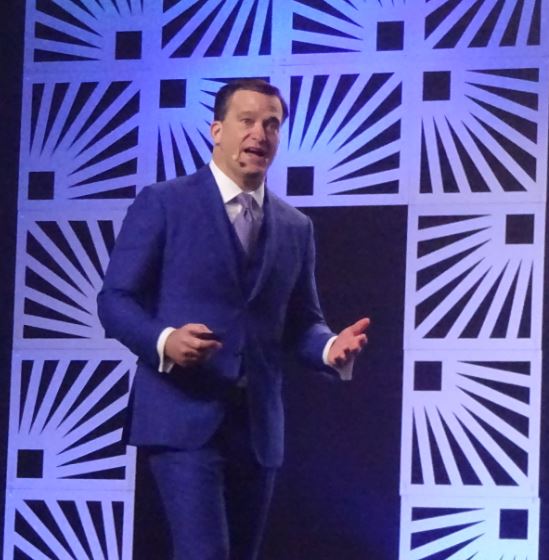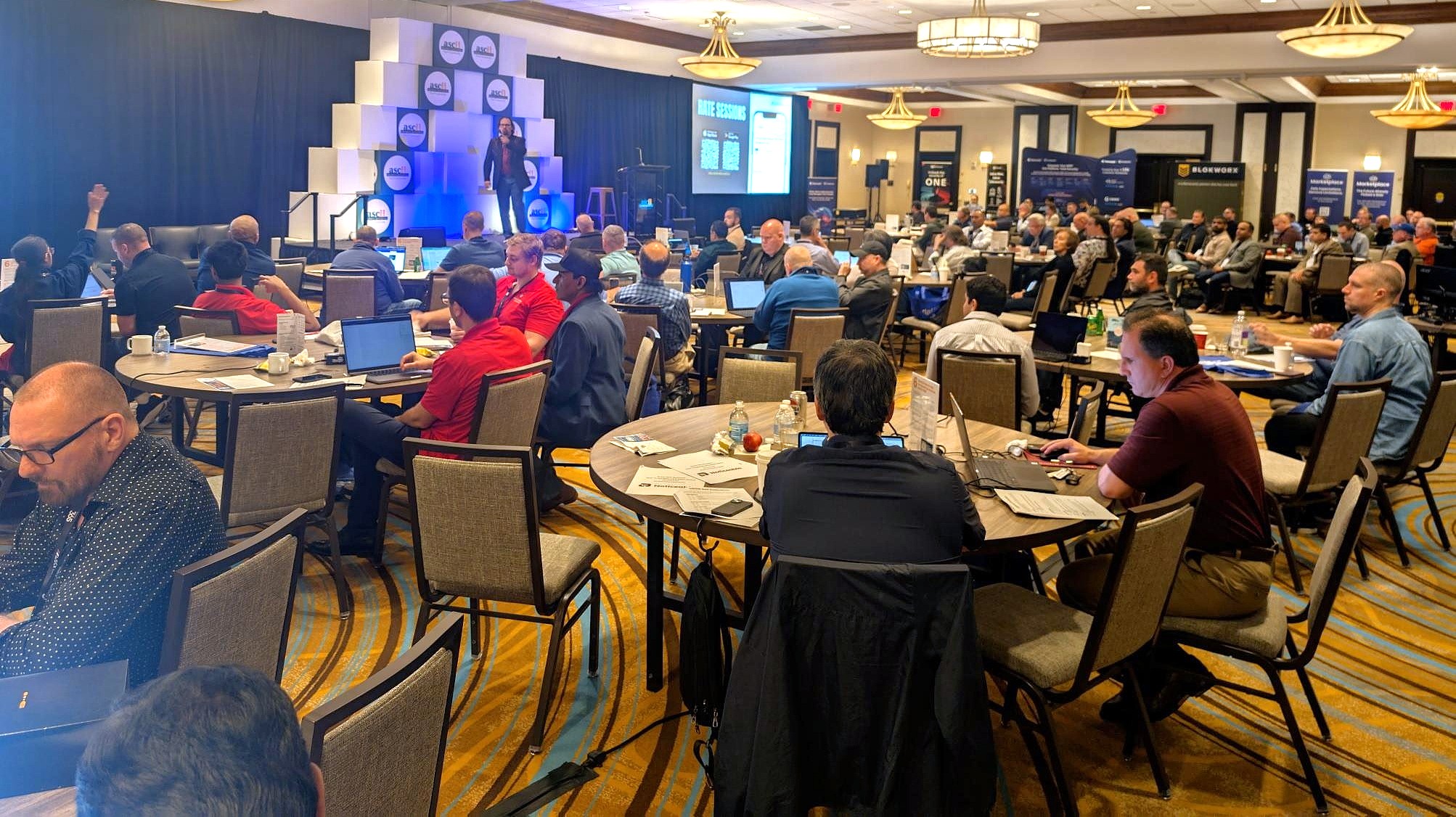At a moment of enormous uncertainty, Kaseya CEO Fred Voccola feels confident about three things: 1) The economy is in rough shape, 2) the economy will eventually recover, and 3) when the economy does recover, Kaseya and its partners will be poised for success.
Voccola made those and other points yesterday during a virtual event outlining Kaseya’s strategic thinking, latest product updates, and future roadmap plans. Undeniably, he observed, the economic shutdown caused by the coronavirus pandemic has already done unprecedented damage to SMBs and MSPs already, and it has yet to complete its path of destruction.
“A lot of people have lost their jobs. A lot more are going to. The economy is tough. It’s going to get harder,” Voccola said. Yet as surely as dark days lie ahead, he added, it’s equally certain that better times will follow. One need only look at the last hundred years and its multiple, often severe, downturns to know it.
“The economy always gets stronger. It always finds a way to grow.” Voccola stated. The growth that emerges from this crash, he added, will be especially kind to channel pros.
“We’ve now entered a new era, which presents even more opportunities for small to midsize business technology providers,” Voccola said.
That new era, which follows an earlier one marked by accelerating adoption of cloud computing and other transformative technologies, arrived all but overnight this spring in response to coronavirus-related distancing measures that have made remote work and online everything a necessity for survival among SMBs especially.
“Small to midsize businesses were hit first and were hit hardest in the COVID-19 crisis, and all the IT technology that became mainstream during the previous era is absolutely required now to deliver what SMBs need,” Voccola said. “All of this happened in just 60 days. It’s amazing. It’s amazing to think about how the speed of this took place.”
The healthcare industry is a prime example, he continued. With doctor’s offices closed to most patients, telehealth systems have suddenly become the only way medical practices can deliver care. Restaurants that can’t make money from in-room dining have had to embrace online takeout orders.
Indeed, as he discussed in an interview set to air on the ChannelPro Weekly podcast next week, Voccola has seen that particular phenomenon up close. He and his parents have been eating together regularly for years at a restaurant on the New Jersey shore that’s using internet ordering to keep itself afloat. “I know the guys that own this restaurant,” Voccola says. “They did not have an online presence two months ago.”
The presence they have now, he added, is here to stay. “It’s not like they’re going to stop doing takeout just to bring people back into the restaurant,” Voccola noted. Physicians aren’t going to shut down their telehealth solutions when coronavirus restrictions are eased either, nor will colleges forced to deliver courses online go completely back to classroom instruction the day a COVID-19 vaccine appears.
“Remote learning is going to put probably a third of universities out of business, and you’re going to see probably 2X that number emerging as virtual learning universities,” Voccola predicted.
The managed services landscape has been transformed permanently too, Voccola continued. The enormous surge in ticket volumes most MSPs saw in the early weeks of the COVID-19 crisis have persisted and are likely to endure.
“We saw the initial spike in March of 2020 as the work from home panic hit and everyone tried to reassess IT, but in the months following we’ve seen in April, and the May data’s trending, and the June projections are showing that this is going to continue moving forward. It’s a new norm. There’s more demand on IT.”
Meeting that demand is going to be increasingly difficult for channel pros, moreover, as recession-shocked businesses with more options than ever shop around for providers who meet high standards but charge low rates. In recent years, according to Voccola, no more than 5% of end users said they were actively looking to change MSPs.
“It’s almost half in April of 2020,” he said. “The reason for that is poor service pricing.”
Add all of those developments together, Voccola argued, and the resulting implication is that the platform MSPs use to run their business must have three characteristics: “It has to deliver all of the essential technologies that are required for IT to digitally transform their customers, their employees, and their customers. Secondly, it has to increase the technicians’ efficiency, because the demands on IT are about 50% higher than they were two months ago. And finally, it has to be very cost effective.”
That, perhaps unsurprisingly, is precisely the set of attributes that Voccola said defines IT Complete, the integrated, multi-function platform Kaseya has been building for years through both organic product development and acquisitions of companies like BDR vendor Unitrends, assessment and compliance vendor RapidFire Tools, cloud backup vendor Spanning, documentation vendor IT Glue, and security vendor ID Agent.
Though still available on a stand-alone basis, products from those companies work together as integrated components to provide comprehensive functionality efficiently, Kaseya says, by reducing what the company refers to as “the space between” applications technicians use every day.
“The space between is the time it takes for a technician to switch tasks, shift the function, retrieve a new password, look up new information, orient to a new interface, try to find some documentation from somewhere,” Voccola said during his keynote. “It’s manual and it’s hard and it takes up about 50% of what a multifunctional technician does.”
Eliminating it saves MSPs money, Voccola continued. “If you have 10 technicians today, you’ll only need eight to get the same work done.” Meanwhile, the economies of scale that an integrated platform provides and a point product doesn’t allow MSPs to further raise profits by spending what Kaseya says is approximately 33% less on software.
Much of the virtual event after Voccola spoke was dedicated to outlining the latest IT Complete integrations, as well as some additional ones due soon. There will be more to come beyond those, as well, because Kaseya now requires all of its business units to dedicate at least 20% of their R&D budget to integration. The company can afford to invest further in such efforts, Voccola told ChannelPro Weekly, because its financial footing remains solid despite the recession.
“We are very, very profitable. We have a very strong balance sheet,” he said. Strong enough, he added, to accommodate the more than $10.5 million the company allocated in April to its Kaseya Cares COVID-19 relief program for MSPs.
MSPs are actually in better fiscal shape than might be expected under present circumstances, according to Voccola, based on conversations with Kaseya partners. Most are making less now than two months ago, but not as much less as businesses in harder hit segments of the economy. “Everyone’s suffering, but we’re suffering, our sector, a lot less,” Voccola said.
MSPs who can make it through the depths of the recession have prosperity ahead of them helping clients further leverage cloud technologies, he asserted. “We are seeing how the economy is going to rebound and what the next five to 10 years of incredible growth will look like,” Voccola said. “We don’t know if it’s going to take three months or two years to get there, but we know what it’s going to look like.














